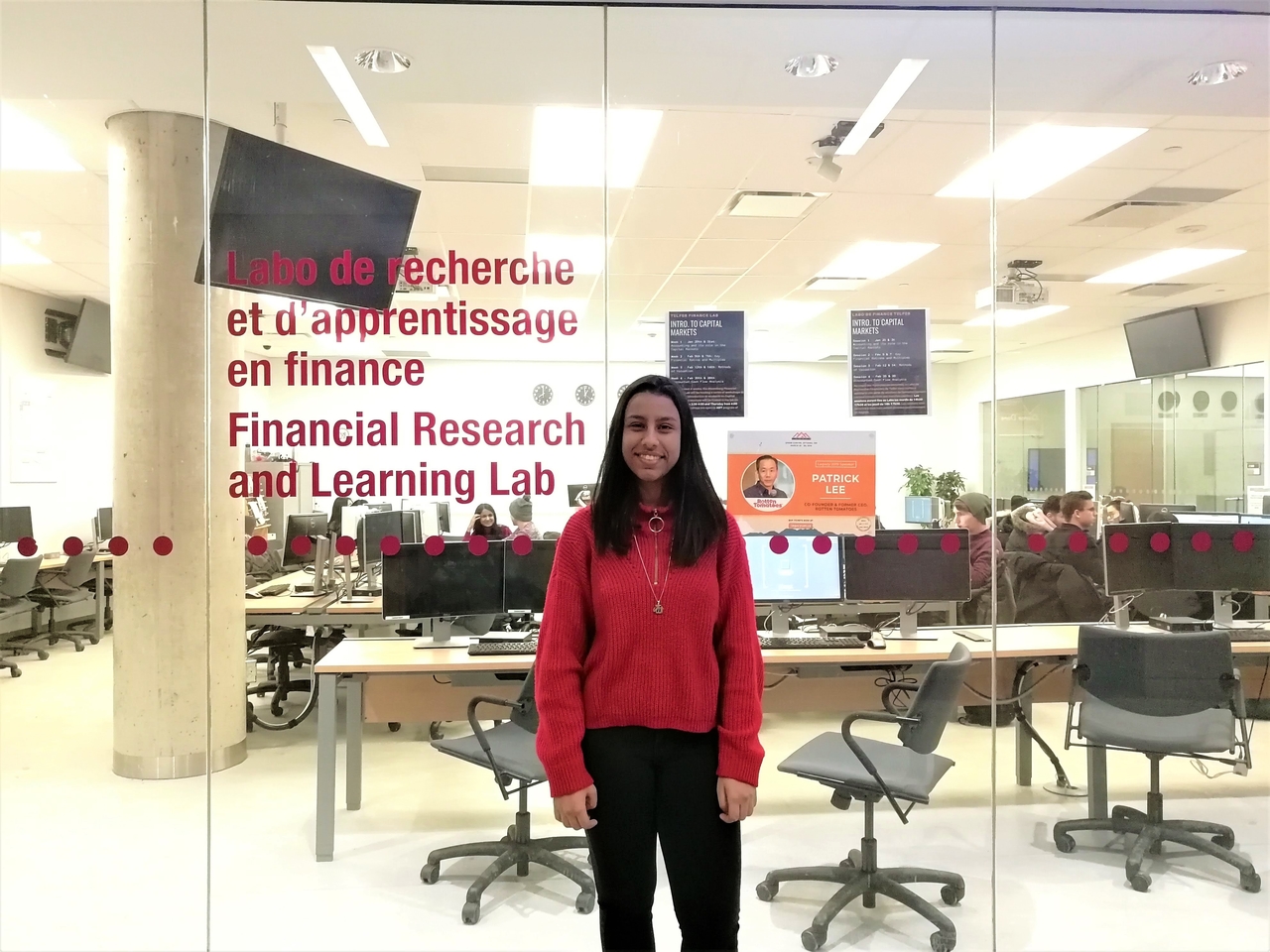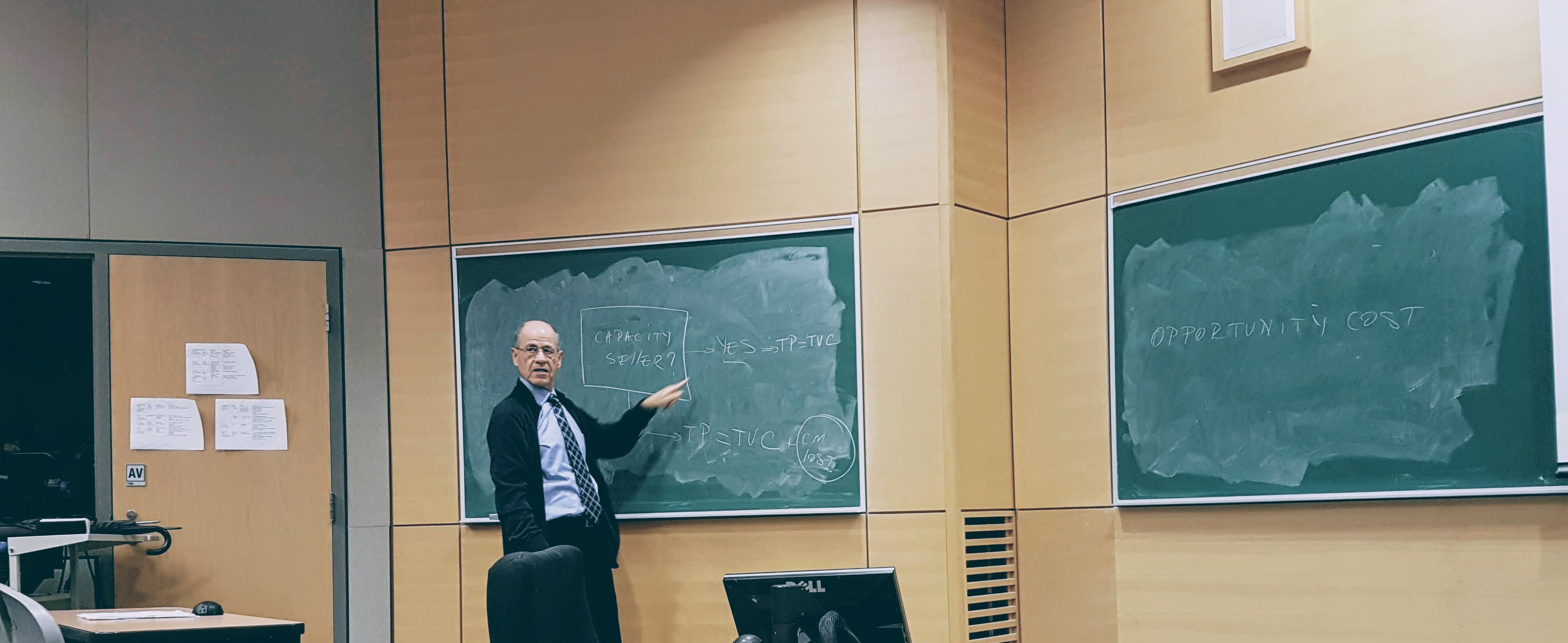Career Blog

- Details
Being a student is time-consuming. From studying for midterms to participating in extracurricular activities, going to networking events to advance your career, and finding time to socialize, life can get overwhelming.
But there’s a way to organize this “overwhelming-ness”: I call these tips the Secrets to Time Management.
1. Turn off your social media
This is something I always do come exam season. Delete all social media from your phone until your exams are all done. It’s the simple concept of “out of sight, out of mind”. At first, it’ll be hard, and you’ll find yourself looking for your social apps, but pretty soon you’ll forget they ever existed.
2. Make a Google Calendar
As someone who has tried every kind of calendar, from trendy notebook agendas to white board posters, I can easily say that Google Calendar is the most efficient. On Google Calendar, you can colour code your different commitments, install reminders on your phone for appointments, and coordinate Google Calendar invites. If you’re finding it difficult to make time for all of your commitments, I highly recommend committing to a Google Calendar!
3. Don’t try to multitask
Multitasking is a common myth. Scientifically, the human brain cannot do two or more things simultaneously. When you are “multitasking”, you’re actually just switching back and forth between two activities at a fast pace, decreasing your productivity in both activities significantly. You’re better off just completing task one and then tackling task two, three, etc.
4. Make a daily to-do list
Every day, either before bed or when you wake up in the morning, make a list of all the things you have to accomplish that day. Checking them off will be super satisfying and will help you stay on track with your goals.
5. Remember why you are here.
When you feel overwhelmed or helpless, ask yourself the following questions:
- Why are you in university?
- Why are you participating in clubs?
- Why are you applying for COOP?
- Why are you going to work?
- Why are you aiming for a 10.0 GPA?
- Why are you reading this blog?
Everything has a purpose: you are advancing your career. Everything you do and all the effort you put in will pay off. The years you spend at university will pave the way for the rest of your life, so make the most of them. Keep in mind that life is not going to be this stressful forever; work hard now so you can relax later. Hopefully, asking yourself these questions when you feel vulnerable will help you keep the bigger picture in mind and motivate you to give everything, no less than 110% of your effort.

- Details
“I have been teaching the undergraduate course in Organizational Behaviour for many years now. While I teach at all levels at the Telfer School of Management, this class is particularly close to my heart. It is a required course, which means that some students are super excited about the material, while others take it because they have to. Regardless, it is wonderful to share my passion for OB with all my students.
It is motivating to show students the relevance of OB regardless of their area of specialization. Various OB concepts have applications that extend beyond a professional setting, such family and friend relationships, or simply life in general. I like to bring in those examples in my discussions. I find that they tend to be useful for students who don’t necessarily have a ton of work experience. These examples allow them to anchor the concepts of the course with something that they are familiar with and then see the applicability of the concepts to the business world.
One of the greatest joys of that class is when I hear from my students who initially didn’t really think they would find this class useful but now they see the applicability of OB to the field that they want to go into later on in life. As a teacher, that is always rewarding.”
- Silvia Bonaccio, Ph.D.
Organizational Behaviour Professor
Note: Professor Bonaccio loves attending the @CASCOTelfer gala to support the CASCO team in their incredible fundraising efforts, which benefit the @CHEOhospital foundation. Her CHEO bear collection continues to grow year after year.
Inspired by Brandon Stanton’s Humans of New York, this weekly feature of the Telfer Career Blog will contain photography of individuals from the Telfer School of Management community and a corresponding narrative that gives us a glimpse into their lives.

- Details
Dealing with uncertainty / rejection after a seemingly successful application process
You polished up your resume. You had your cover letter proofread 4 times. You made sure to tie your experience and abilities to the expectations of the role, all while infusing your personal brand and tone. You did your research on the company culture and voiced how you would fit in and excel there. You did your absolute best and you didn’t hear back. Ouch. It hurts.
To the dismay of the many eager job seekers, the frequented mantra: “only applicants selected for interviews will be contacted” is utilized all too often. Understandably so, although personally, I would appreciate a blunt “no” so I can stop biting my fingernails and end my incessant inbox surveillance.
Maybe you were fortunate enough to be selected for an interview, and if so, congratulations! You decided to be proactive by rehearsing your answers to the most common interview questions, and you made sure to schedule a practice interview with the Telfer Career Centre, incorporating feedback and recommendations about best practices. The day comes and the stars have aligned; you have the best interview of your life. Your answers were eloquent and well developed, you showed genuine interest, asked high-level questions and even made your interviewers laugh! As times goes on without any response, your satisfaction and optimism turn to confusion and disappointment. What went wrong? Do you follow up? How long should you wait? If you’ve already reached out and still receive no answer, what can you do?
Dealing with rejection is the unfortunate possibility we accept with every application we send out. Here are some important things to keep in mind when dealing with the disappointment of a fruitless employment opportunity.
Every experience is experience
- Focus on what you can positively draw from the experience. It could be something as simple as what you may have learned about the other person. Maybe there was a portion of the interview that you felt particularly proud of and want to replicate in the future, or an awkward disfluency you can ensure you avoid next time. Always try to highlight the beneficial aspects of every prospect. Doing so will not only help cope with any disappointments, but will hopefully encourage you to maintain a positive and perseverant outlook to keep trying.
Everything happens for a reason
- Try to take comfort in the notion that this event has occurred to your benefit. Yes, even though it’s a huge bummer, consider that perhaps the present has unfolded in this way to spare you from the worst and to ensure you are available for a better opportunity going forward.
You reap what you sow
- In today’s highly competitive landscape, it’s largely a numbers game. The more applications you send out, the better your odds are at landing a position. Of course, missing out on a dream job is going to sting a whole lot, but with effort and determination, the world is your oyster. Don’t give up.
(Stay tuned for the follow up to this article where we will address how to follow up after an interview.)
Want more information on interviews? Here are some other blog posts that might be of interest to you:

- Details
Foreign students in Canada do not always have an easy time building the foundations for a solid career. Indeed, international students face a number of obstacles when searching for work. This article deals with this subject and provides advice to all international students.
Lack of Canadian job experience
Private and public organizations are reluctant to trust international expertise and to hire applicants who lack work experience in Canada. Therefore, I recommend that international students get actively involved within the University, by volunteering, networking, taking part in work-study programs over the summer, in order to acquire precious Canadian job experience. Students don’t necessarily need to work in an office or in a prestigious position at first: the goal is to gain experience in any field. The skills they develop in any job can be transferred to other fields. In addition, Telfer’s Career Centre organizes many workshops and events, such as Telfer Connects and Telfer Networks, which are ideal for honing skills and finding tools that will help foreign students succeed.
International student status
Ottawa and Gatineau are government towns: since government is one of the area’s main employers, much of the job market is government-based. Unfortunately, international student status greatly limits access to certain positions in government and in private companies that have landed government contracts. I experienced this situation first hand when the CO-OP counsellor informed me that I would probably not be able to undertake a CO-OP placement in a government department, even though I am a permanent resident.
It’s all fine and well to network, meet people, get involved and succeed in your field, but some jobs will always be out of reach for those who are not Canadian citizens. When you’re told “You’re really competent, and we’d love to hire you, but unfortunately, you’re not a Canadian citizen”, you realize that being a foreign student is a real handicap and closes several doors.
Message to international students
Even so, the message I would like foreign students to take away from this article is that even if they don’t have a wide network in a host country, in this case Canada, they shouldn’t give up hope. Foreign students simply need to understand that they will have to work two or three times harder to reach their goals. This type of attitude can tip the scales and by knowing what to expect, students can prepare to face these challenges. I was once a foreign student and I know better than anyone what awaits us in Canada; even though I am now a permanent resident, there are still opportunities that are closed to me.
In closing, Canada is a beautiful country with more and more opportunities: a new Eldorado. The country’s growing immigrant population has increased diversity in Canada, creating an environment that is changing the attitudes and lifestyles of Canadians. Newcomers to Canada just need to work hard and keep hope alive. As is often say: there is light at the end of the tunnel.

- Details
“The Capital Markets Program (CMP), also known as Telfer Capital Fund (TCF), gives students the opportunity to gain real-life experiences in financial investment during their school years. Through listening to different speakers that came in to discuss what their jobs are like, I had the opportunity to better understand what working in the field of Capital Markets looks like. I am thankful for my experience with the CMP thus far. I have been on a steep learning curve. I have had the opportunity to not only develop valuation skills but also apply the knowledge acquired to real-life scenarios. I feel like I’ve gotten accelerated through school! I would encourage anyone who is passionate about the capital markets to apply to join the CMP. For those who are still in the discovery phase, I would encourage them to come to workshops hosted by the program to get a feel for what it really is and ask questions.”
- Nourhan Mohamed
3rd Year Finance Student
For those who want more information concerning the Telfer Capital Markets Program (CMP), contact Tarek Kassem, Manager of the Financial Research and Learning Lab, at
Don’t miss the information session on the CMP that will take place on Wednesday, February 13, 2019, at 5:30 p.m. Register online!
Inspired by Brandon Stanton’s Humans of New York, this weekly feature of the Telfer Career Blog will contain photography of individuals from the Telfer School of Management community and a corresponding narrative that gives us a glimpse into their lives.

- Details
I used to think that an interview involved simply preparing for it, arriving on time, presenting your best self during the interview and then leaving and waiting to see what happens. I didn’t understand what we should be doing over and above the interview itself.
That changed when I attended one of the workshops put on by the Career Centre. I learned something very valuable that has helped me and will continue to help me throughout my career. And I’d like to share what you too can do to help you stand out from other candidates.
Essentially, I learned three important things to always do after an interview:
Ask for the interviewer’s business card
Asking the interviewer for a business card ensures you have the person’s contact information, which is essential for sending the interviewer a thank you letter. Once you have this information, you can also invite the interviewer to connect on LinkedIn, network with the person and perhaps develop a long-term professional relationship. Who knows? Maybe this means that person will think of you one day down the road when they’re looking to fill another position.
Send a thank you letter
It’s very helpful to send a thank you letter after the interview (ideally within 24 hours). In addition, to really show you’re interested in the position, you can use this as an opportunity to touch on some of the points you brought up in the interview again and to highlight for the employer why you think you’re the best candidate. For example, after the interview I attended for an ambassador position at the Career Centre, I sent a letter to Amanda to thank her for inviting me to the interview and to emphasize the qualities I could bring to the position. I’m not sure if this was what tipped the scales in my favour, but today I’m an ambassador at the Career Centre. Personally, I tend to send thank you letters only for the jobs I really want.
Follow up
I think it’s important to follow up after an interview if the date the employer gave you for a decision has come and gone. I know it may seem trivial, but following up shows you’re really interested in the position and enthusiastic about the opportunity. That said, in my humble opinion, not following up doesn’t necessarily reduce your chances of being hired or knock you out of the running—if the employer is truly interested in you, they’ll hire you whether you followed up or not.

- Details
“Focus and commitment. These are the keys to a better life and future. To succeed in life, just as in the game of golf, we require focus. If you lose focus, the ball won’t go where you want it to. You must be committed to the shot. Comparing Managerial Accounting to golf, there are many things in common: how the quality of the decisions we make are positively correlated with the impacts of these decisions. In life, we can make plans but sometimes it is better to leave things unpredicted and follow the path that is presented to us.
The main reason I switched to teaching was something I never expected. I was young and just completing my studies when I was asked to teach a course for the first time in my life. At the end, the students stood up and gave me a standing ovation. This was a humbling and incredibly emotional experience for me. This was the critical moment I made my decision. There has been no regret since.
As professors, we have a chance to face hundreds of students who come to listen, learn, and improve themselves. Contributing to that journey is the best dividend for me as a professor. Throughout your journey, remember the keys: stay focused and committed.”
- Fodil Adjaoud, Ph.D., FCPA, FCGA, CMA
Managerial Accounting Professor
Inspired by Brandon Stanton’s Humans of New York, this weekly feature of the Telfer Career Blog will contain photography of individuals from the Telfer School of Management community and a corresponding narrative that gives us a glimpse into their lives.

- Details
It’s never too early to start planning for your career! Whether you’re in your first term of university or your last, it’s important to start thinking about what you’re going to do once you graduate.
Career planning involves identifying where you want to go and how you’re going to get there. It’s about weighing your skills, interests and values in relation to the different job opportunities out there. It is one of the most crucial — yet most often overlooked — steps before graduating. Career planning will allow you to set clear goals and be on track for success!
Now that you understand how important it is to start planning for your career, where do you start? Well, below are some tips to help you!
Understand what you like and dislike: It’s important first to understand and reflect on what you like and don’t like to do. Moreover, make a list of what’s important to you in a career. This will help you understand what type of career you would like to pursue.
Explore options: Now, after considering your likes and dislike, explore different options that may suit you. You can do this by reaching out to professionals, either in networking events or through LinkedIn. Do your research!
Make career goals: Once you’ve done your research, the next step should be to start setting goals. Set both short-term and long-term goals. Write these goals down and maybe even share them with a friend. Hold yourself accountable for them!
Look for learning/training opportunities: After you have made these goals, research the steps that you need to take to achieve them. Usually, this would involve developing certain skills. Consider the skills you already have, as well as the skills you would like to gain or develop. Now, look for learning and training opportunities. These opportunities could come from workshops, online courses or professional development activities.
Career Centre: The Career Centre has many resources that can help you plan your career. These resources include workshops, resumé critiques, career testing and more. They are easily available to you, so take advantage of them!

- Details
LinkedIn has many features which allow users to access new and different information, and as a platform created on the basis of expanding user’s professional network, it is a great place to start your job search.
The following 3 tips will allow you to fully utilize your LinkedIn account during your job search.
1. Keep your profile updated and relevant
Many recruiters use LinkedIn as a tool for finding new applicants in the industry, and to do this they make searches based on key words, experiences, skills, and more. By keeping your profile up to date and featuring all relevant knowledge, experience and skills, you are making yourself more visible to the recruiters in your desired industry.
Keeping your profile updated also means that you can quickly and easily apply for jobs without worrying about outdated or missing information. Then when you find the perfect job with a quickly approaching application deadline, you are prepared and can apply within minutes.
2. Use the Job Search Function
This option is a great tool because it allows users to make their search as custom or as broad as they would like. Search for jobs on LinkedIn by clicking the "Jobs" tab, entering keywords and location. Then, you can further customize your search by using the advanced search option and to search by date posted, experience level, specific location, job function, company, and industry. You can then save your searches and receive email notifications when jobs are posted under your saved searches, so you never miss the perfect opportunity!
3. Use Company’s Profile Pages to Learn More and Find Jobs
Many companies have their own profile on LinkedIn which feature information about their mission and vision, recent news, updates, and more. You can also see many employees who work for the company, and a list of current jobs. This can be utilized during the job search in order to target specific companies you may be interested in and get notifications when they post new jobs.

- Details
“For me, choosing Telfer was an easy decision. After attending some of the info sessions offered by the University, I was able to gain valuable information on the CO-OP program. This program will provide me with the opportunity to meet and engage with potential employers, which will be very beneficial, especially when I enter the workforce. This was one of the many reasons that I chose Telfer, and I think it is one of the reasons that you should too.”
- Ryan
First Year Finance Student

